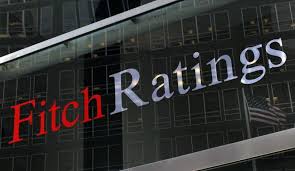 Fitch Ratings, one of the “Big Three” credit rating agencies in the world, has decided to downgrade Lebanon’s rating from B- to CCC, according to media reports
Fitch Ratings, one of the “Big Three” credit rating agencies in the world, has decided to downgrade Lebanon’s rating from B- to CCC, according to media reports
“Lebanese sides have been informed that the Fitch agency has finalized its report and downgraded Lebanon’s rating to the level of CCC,” al-Joumhouria newspaper reported on Friday.
This development comes after Moodys stated last June that slowing capital inflows to Lebanon and weaker deposit growth increase the risk of a debt rescheduling or other steps that may constitute a default despite fiscal consolidation measures in the 2019 draft budget. The draft budget aims to cut the deficit to 7.6% of gross domestic product from 11.5% last year, with Lebanese leaders warning the country faces financial crisis without reform.
“This means that international financial institutions will deal with Lebanon on the basis of the CCC rating, seeing as the Moody’s agency has already given Lebanon this same rating,” the daily added.
In an anticipated report that will be released on Friday, the third rating agency, Standard & Poor’s, is expected to keep Lebanon’s rating at B-, according to a Lebanese official and media reports.
Lebanon’s government debt ratio is about 160 per cent, the third highest in the world, and projected to cross 170 per cent by 2023, according to the International Monetary Fund, unless there is a sharp fiscal correction.
What underlies a downgrade?
Successive governments have been fiscally reckless, with an average budget deficit of 8.4 per cent of GDP since 2010, while real growth has been a miserly 1.8 per cent and falling.
Debt service interest now represents over 50 per cent of government revenue; wages and pensions account for over a third of total spending and subsidies to the grossly inefficient Electricité du Liban are running at about 10 per cent of total spending. The result has been a large buildup of debt, failing infrastructure and logistics, without a build-up of real assets in terms of physical or human capital.
In the past 18 months, interest rates have been ratcheting upwards to compensate investors for the growing fiscal risks. The move also aims to attract deposits and portfolio investments from the Lebanese diaspora to protect the overvalued exchange rate and finance the high current account deficit
However, deposit inflows have been declining and capital outflows have been accelerating in 2019 as investors lose confidence, leading to a widening of the current account deficit.
Leave a Reply
You must be logged in to post a comment.